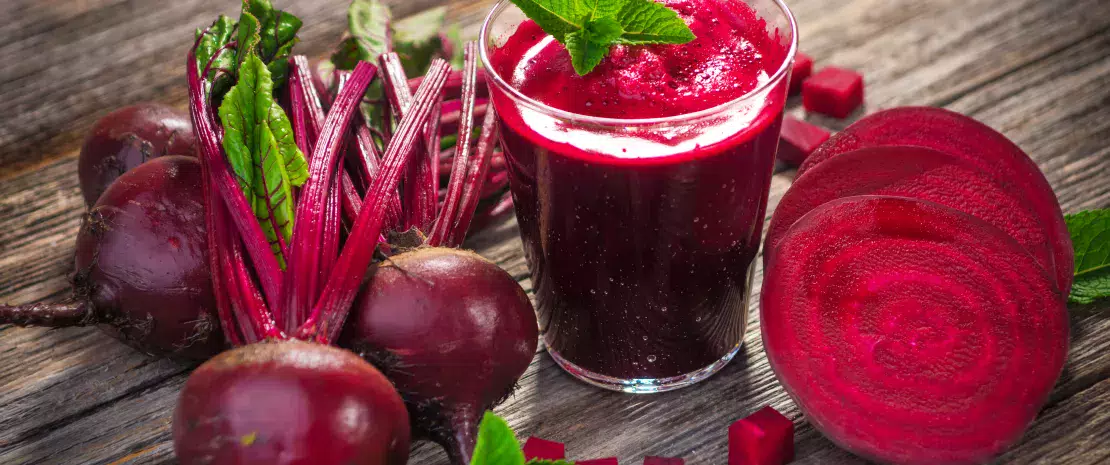The oral microbiota and old age: a fresh start with a glass of nitrate-rich beetroot juice
Vegetables and beetroot juice: the best way to boost oral bacteria beneficial to vascular health and cognitive function! Would you like another glass?
- Learn all about microbiota
- Microbiota and related conditions
- Act on your microbiota
- Publications
- About the Institute
Healthcare professionals section
Find here your dedicated section
Sources
This article is based on scientific information

About this article
We all know how vegetables are good for us when it comes to nutrition, digestion, hydration, and reducing stress, but with this new discovery their benefits seem endless: the winning combination of nitrates and their effects on our oral bacteria. Like many other vegetables, beetroot is rich in inorganic nitrate, which is transformed by the oral bacteria into nitrite and then nitric oxide (NO). NO is beneficial to the health of our arteries and our grey matter. The only problem is that NO production diminishes with age. Could a glass of nitrate-rich beetroot juice help roll back the years?
Ten days of nitrate-rich beetroot juice for an oral microbiota in top form
This supplementation has fast-acting effects: a study has shown that consuming beetroot juice for ten days was enough to considerably modify the oral microbiota of about thirty Icelanders aged 70-80. Consuming the nitrate-rich juice influenced a number of bacterial groups in their oral microbiota. Specifically, there was a decrease in certain bacteria associated with inflammation (Prevotella and Veillonella) and in the dreaded Clostridium difficile, which can infect the gut and cause diarrhea. Conversely, other bacteria became relatively more abundant, such as a group comprising Neisseria and Haemophilus, both of which are associated with periodontal health, younger age, lower BMI, and abstinence from smoking.
Blood pressure down, attention up, morale excellent
Nitrate supplementation via beetroot juice reduced average blood pressure in participants. High blood pressure is a risk factor for cognitive decline. In this study, a reduction in blood pressure went hand in hand with an increase in certain bacteria (Streptococcus and Rothia) whose presence increases following absorption of the juice. Moreover, nitrate-rich beetroot juice also proved beneficial to cognitive health. However, the participants in the study were active and healthy seniors whose blood pressure was generally good. It remains to be seen whether this beneficial effect can be reproduced in other age groups and in people in poorer health. In the meantime, we should all include as many vegetables as possible in our meals and smoothies!
Sources












